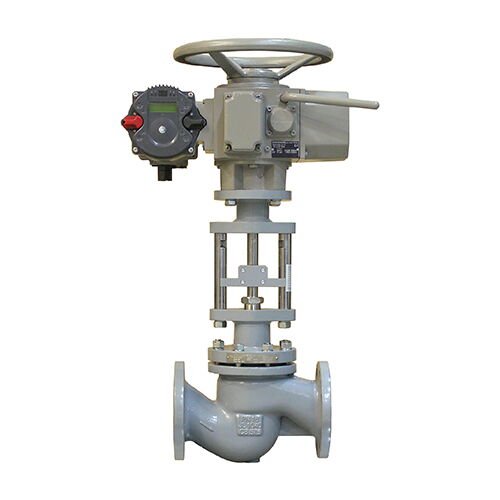The Role of Electric Control Valves in Heating Systems
In modern heating systems, electric control valves play a crucial role as key equipment for controlling the flow and pressure of fluids such as water, steam, and gases. Their primary function is to automatically adjust the valve opening according to system demands, thereby regulating fluid flow and ensuring the stable operation of heating systems. This article explores in detail the application and value of electric control valves in heating systems from three perspectives: enhancing control capability, improving control accuracy, and optimizing system operation.
1. Enhancing Control Capability of Heating Systems
In heating systems, parameters like temperature and pressure often fluctuate due to external environmental factors or internal load changes. Traditional manual control valves require operators to adjust them based on monitoring data, which can lead to delayed responses or inaccurate adjustments, thereby affecting system stability and efficiency. In contrast, electric control valves utilize automated control systems for remote monitoring and adjustment, enabling immediate responses to system changes. This capability facilitates rapid and precise adjustments, ensuring the heating system operates stably under various conditions. Such capability significantly enhances the system's adaptability to complex environments and load variations.
2. Improving Control Accuracy of Heating Systems
Controlling fluid flow and pressure profoundly impacts the performance and energy efficiency of heating systems. Traditional manual control valves often struggle to meet stringent engineering requirements due to operator skill levels and operational errors. Electric control valves, equipped with advanced sensor technology and precise control algorithms, continuously monitor system parameters. They adjust valve openings accurately according to predefined control strategies. Seamlessly integrated with intelligent control systems of heating systems, electric control valves maintain stable fluid flow and pressure under varying loads. Consequently, they enhance heating quality, improve energy efficiency, and reduce energy consumption.
3. Optimizing Operation of Heating Systems
Optimizing the operation of heating systems is critical for achieving high efficiency and energy savings. Traditional manual control valves rely on operator experience and manual adjustments, often resulting in delayed or imprecise adjustments, leading to inefficiencies and energy waste. Electric control valves, through the application of intelligent control systems, adjust valve openings intelligently based on real-time system operation status. This intelligent optimization not only enhances heating effectiveness and operational efficiency but also significantly reduces energy consumption. It effectively achieves energy-saving and emission reduction goals.
In conclusion, electric control valves are pivotal equipment in modern heating systems. By enhancing control capability, improving control accuracy, and optimizing system operation, they significantly elevate the stability, reliability, and energy efficiency of heating systems. With ongoing technological advancements and expanding applications, electric control valves will continue to play a vital role. They will provide smarter and more efficient fluid control solutions for the construction and industrial sectors, driving the heating industry towards greater sustainability and environmental friendliness.

